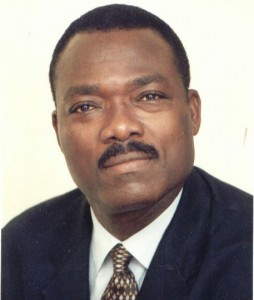What we, African immigrants in the United States, owe Dr. King
By Soumanou Salifou

Founder, Publisher and CEO
Thirty years ago this August 27, I landed at John F. Kennedy airport in New York as a prospective student in one of America’s most prestigious institutions of higher learning, The Paul Nitze School of Advanced International Studies of the Johns Hopkins University, in pursuit of the biggest dream of my life at that time: to further my education and start a new career. Little did I know, arriving in Washington, D.C., the final destination of my historical journey, on the bright Saturday afternoon of August 27, 1983, that my arrival coincided with the celebration of the 20th anniversary of the historical August 28, 1963 March on Washington during which the late Rev. Martin Luther King, Jr. had publicly revealed his Dream, that of Justice for Black Americans.
The black American community has seen enormous progress since what became known as “The I have a Dream Speech,” but there is room for improvement. The son of an African man and a white American woman won the U.S. presidency in 2008 and was re-elected four years later thanks, in part, to the votes of White Americans; but anti-black racism, targeting the president himself, has shot up since.
Although Dr. King did not utter the word “African” even once in his historical speech, his struggle has also uplifted millions of Africans like myself who now call this country home. Fiftty years after Dr. King came to Washington to cash the “check that will give us upon demand the riches of freedom and the security of justice,” several generations of African immigrants have been able to open doors of opportunity for themselves in this great country. New York Times White House correspondent Helene Cooper, originally from Liberia; Daniel Yohannes from Ethiopia, Chief Executive Officer of the Millennium Challenge Corporation (MCA); and Charlize Theron, Hollywood actress and fashion model from South Africa, are among those who top the long list. But, we, too, still have a way to go.
In 1991 a white babysitter who had advertised her services at the Giant store in Saratoga, Springfield, VA where I then lived, had no trouble telling me and my wife bluntly: “No black child,” when we knocked on her door. Twenty-two years later, on May 1st, 2013, while on my daily walk in a wooded area of Stafford, VA in broad daylight, I was stopped and questioned by the police after someone had called them about a black man who urinated in the woods, under the suspicion that he “may be wanted.” The officer let me go only after checking me out in the local records and found nothing wrong.
“Nineteen-sixty-three is not an end, but a beginning,” Dr. King said. As Africans of my generation come to grips with the irreversible reality of aging, we should hope that future generations will work harder to keep the Dream alive.
I consider this August 27, thirty years after my Dream brought me to these shores, as a critical milestone in my personal journey, the opportune time to look back and take a deep breath.
With all my six children attending good universities, and my oldest son (a Public Policy major who is first in line to carry on the torch) and his wife pursuing their studies at the University of Virginia – the second highest-ranked public university in the United States, the best university in the State of Virginia, ranked 23rd among the hundreds of American universities – I believe my journey was worth all the cuts and bruises.
My little ones and millions of children of other African immigrants, some of whom attend prestigious universities such as Harvard, Yale and MIT, will, no doubt, walk in the trails we, the parents, have blazed for them.
Forward March, children!


